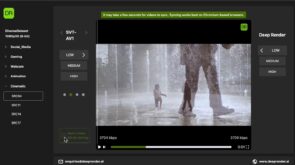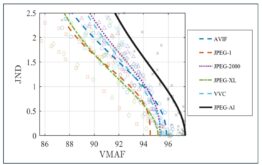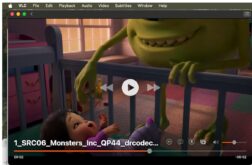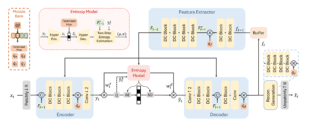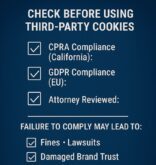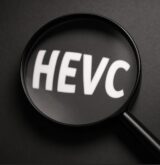I’ve been spending a lot of time with enterprise encoders lately, these expensive, mythical beasts that input and transcode multiple files complete (in some cases) with quality checks, distribution-ready metadata, and closed captioning. This includes two reviews (on Elemental Server and Telestream Episode Engine) and a session at Streaming Media East on choosing an enterprise-class video encoder.
While the most obvious benefit of enterprise encoders is throughput — typically via either dedicated hardware or server farm operation — many other factors dictate whether or not you need to step up to an enterprise system. These include the need for multiple-format closed captioning or metadata packages, API-level integration with content management and web publishing systems, or access to features such as quality control or encryption. Most enterprise systems can also ensure failover protection, so if one encoding station goes down, the encoding continues.
When choosing an enterprise encoder, the first choice is between workflow system and high-volume encoder. While all enterprise systems offer API-level and watch folder integration, high-volume encoders, such as Sorenson Squeeze Server, Elemental Server, and Telestream Episode Engine, are primarily encoding engines that quickly crunch through the files you send them for delivery to a folder or remote FTP site.
In contrast, workflow systems such as Telestream Vantage and the Rhozet Workflow System (WFS) build intelligence into the encoding workflow. For example, they can sense if an incoming file is SD or HD or 4:3 or 16:9, and they can apply a different encoding preset based on this information. They can also perform post-encoding quality control checks and kick out a nonconforming file, or even re-encode at a higher data rate to ensure quality. While high-volume encoders can access third-party quality control programs, typically it’s via watch folder operation, so operation and reporting isn’t so well-integrated. The downside of workflow systems is cost; they typically require a separate workflow module on top of the encoding module, with quality control an added cost whether via an integrated option or third-party product.
Beyond the workflow versus high-volume encoder decision, you should next focus on issues such as metadata and closed-captioning. In particular, the latter is a major distinction between the various offerings. Most enterprise encoders can pass-through EIA-608 (Line 21) or EIA-708 closed-captioning to MPEG-2 encoded transport streams, but few can repurpose these inputs for playback on Flash, iOS devices, and other common targets, which is becoming increasingly important.
Workgroup operation is another distinguishing factor. Most enterprise encoding systems are black boxes from the end user’s perspective, with presets created and operation controlled centrally by an administrator. In some shops, it might be better to have individual encoders on some desktops with access to high-volume encoding when needed; this is one of the key benefits of the clustering capabilities found in the Telestream Episode line of products or Squeeze Desktop and Squeeze Server.
Another related consideration is the robustness of server-farm operation. Can a single point of failure bring the entire system down, or can the system work around any failures? If so, what does this functionality cost? For some operations, this feature will be the most important product differentiator.
If you’re just starting out your search, consider watching my Streaming Media East session, or at least download the presentation. Also, you might search StreamingMedia.com for reviews of your candidate systems. I should be adding to the list all year.
 Streaming Learning Center Where Streaming Professionals Learn to Excel
Streaming Learning Center Where Streaming Professionals Learn to Excel

